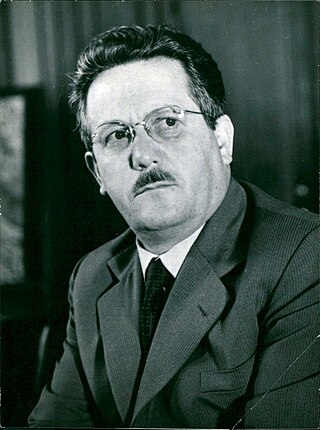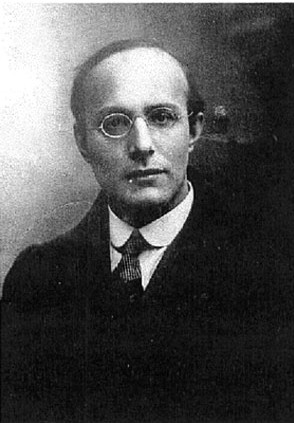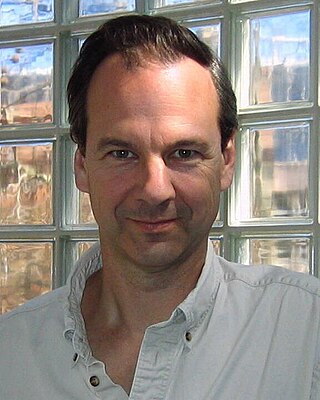Related Research Articles

Milton Friedman was an American economist and statistician who received the 1976 Nobel Memorial Prize in Economic Sciences for his research on consumption analysis, monetary history and theory and the complexity of stabilization policy. With George Stigler, Friedman was among the intellectual leaders of the Chicago school of economics, a neoclassical school of economic thought associated with the work of the faculty at the University of Chicago that rejected Keynesianism in favor of monetarism until the mid-1970s, when it turned to new classical macroeconomics heavily based on the concept of rational expectations. Several students, young professors and academics who were recruited or mentored by Friedman at Chicago went on to become leading economists, including Gary Becker, Robert Fogel, and Robert Lucas Jr.

Economic history is the study of history using methodological tools from economics or with a special attention to economic phenomena. Research is conducted using a combination of historical methods, statistical methods and the application of economic theory to historical situations and institutions. The field can encompass a wide variety of topics, including equality, finance, technology, labour, and business. It emphasizes historicizing the economy itself, analyzing it as a dynamic entity and attempting to provide insights into the way it is structured and conceived.

Gary Stanley Becker was an American economist who received the 1992 Nobel Memorial Prize in Economic Sciences. He was a professor of economics and sociology at the University of Chicago, and was a leader of the third generation of the Chicago school of economics.

Edvard Kardelj, also known by the pseudonyms Bevc, Sperans, and Krištof, was a Yugoslav politician and economist. He was one of the leading members of the Communist Party of Slovenia before World War II. During the war, Kardelj was one of the leaders of the Liberation Front of the Slovenian People and a Slovene Partisan. After the war, he was a federal political leader in the Socialist Federal Republic of Yugoslavia. He led the Yugoslav delegation in peace talks with Italy over the border dispute in the Julian March.

The University of Ljubljana, abbreviated UL, is the oldest and largest university in Slovenia. It has approximately 38,000 enrolled students. The university has 23 faculties and three art academies with approximately 4,000 teaching and research staff, assisted by approximately 2,000 technical and administrative staff. The University of Ljubljana offers programs in the humanities, sciences, and technology, as well as in medicine, dentistry, and veterinary science.
The Chicago school of economics is a neoclassical school of economic thought associated with the work of the faculty at the University of Chicago, some of whom have constructed and popularized its principles. Milton Friedman, and George Stigler are considered the leading scholars of the Chicago school.

Joan Violet Robinson was a British economist known for her wide-ranging contributions to economic theory. One of the most prominent economists of the century, Joan Robinson incarnated the "Cambridge School" in most of its guises in the 20th century. She started out as a Marshallian; became, after 1936, one of the earliest and most ardent Keynesians; and ended up as a leader of the Neo-Ricardian and Post-Keynesian schools.

Karl Paul Polanyi, was an Austro-Hungarian economic anthropologist, economic sociologist, and politician, best known for his book The Great Transformation, which questions the conceptual validity of self-regulating markets.

Theodore William Schultz was an American agricultural economist and chairman of the University of Chicago Department of Economics. Schultz rose to national prominence after winning the 1979 Nobel Memorial Prize in Economic Sciences.

Lars Peter Hansen is an American economist. He is the David Rockefeller Distinguished Service Professor in Economics, Statistics, and the Booth School of Business, at the University of Chicago and a 2013 recipient of the Nobel Memorial Prize in Economics.

Edward Paul Lazear was an American economist, the Morris Arnold and Nona Jean Cox Senior Fellow at the Hoover Institution at Stanford University and the Davies Family Professor of Economics at Stanford Graduate School of Business.

Hans-Werner Sinn is a German economist who served as President of the Ifo Institute for Economic Research from 1999 to 2016. He currently serves on the German economy ministry’s advisory council. He is Professor Emeritus of Economics and Public Finance at the University of Munich.
Stephen Alan Marglin is an American economist. He is the Walter S. Barker Professor of Economics at Harvard University, a fellow of the Econometric Society, and a founding member of the World Economics Association.
Family economics applies economic concepts such as production, division of labor, distribution, and decision making to the family. It is used to explain outcomes unique to family—such as marriage, the decision to have children, fertility, time devoted to domestic production, and dowry payments using economic analysis.

Renata Salecl is a Slovene philosopher, sociologist and legal theorist. She is a senior researcher at the Institute of Criminology, Faculty of Law at the University of Ljubljana, and holds a professorship at Birkbeck College, University of London. She has been a visiting professor at London School of Economics, lecturing on the topic of emotions and law. Every year she lectures at Benjamin N. Cardozo School of Law, on Psychoanalysis and Law, and she has also been teaching courses on neuroscience and law. Since 2012 she has been visiting professor at the Department of Social Science, Heath and Medicine at King's College London. Her books have been translated into fifteen languages. In 2017, she was elected as a member of the Slovene Academy of Science.

Franklin "Frank" J.B. Stilwell is an Australian political economist and Professor Emeritus. He is known for establishing, with Evan Jones, Gavan Butler, Margaret Power, Debesh Bhattacharya, Geelum Simpson-Lee and Ted Wheelwright, an independent political economy department at the University of Sydney. His research interests include theories of political economy, inequality, urbanization, and regional development, Australian economic policy and the nature of work. His textbooks on the subject are standard teaching material for all university students in Australia studying the field of Political Economy. Stilwell's contribution to heterodox economics makes him a noteworthy figure of the Australian New Left.

The Gary Becker Milton Friedman Institute for Research in Economics is a collaborative, cross-disciplinary center for research in economics. The institute was established at the University of Chicago in June 2011. It brought together the activities of two formerly independent economic research centers at the university: the Milton Friedman Institute for Research in Economics and the Becker Center on Chicago Price Theory.
Hans-Joachim Voth is a German economic historian. He joined the University of Zurich economics faculty in 2014 and has been the Scientific Director of the UBS Center for Economics in Society since 2017. In 2022, he was elected as a Fellow of the Econometric Society.

Michael Patrick Keane is an American-born economist; he is the Wm. Polk Carey Distinguished Professor at Johns Hopkins University. Keane was previously a professor at the University of New South Wales and the Nuffield Professor of Economics at the University of Oxford. He is considered one of the world's leading experts in the fields of Choice Modelling, structural modelling, simulation estimation, and panel data econometrics.

Luka Mesec is a Slovenian politician and activist who has been the leader of the eco-socialist The Left party since June 2017. Mesec was elected to the Slovenian National Assembly for the first time at the 2014 parliamentary election, and reelected at the 2018 parliamentary election. He is the coordinator of the Council of the Initiative for Democratic Socialism, Labour-Punk University, and its successor, the Institute for Labour Studies.
References
- ↑ "Workers' Punk University - Culture of Slovenia". Culture.si. 2012-07-13. Retrieved 2012-09-16.
- 1 2 Jela Krečič: Razredni boj po razrednem boju, Delo, 16 February 2011
- ↑ Delavsko-punkerska univerza: Potomci delavcev so ostali delavci in pozabili na punk, Dnevnik, 16 February 2013
- ↑ A 2013 lecture by Peter Hudis
- ↑ A 2014 lecture by Michael Roberts
- ↑ Joachim Becker: "Nujno je treba zavreti poglabljanje neoliberalizma v Evropski uniji, saj je to slepa ulica", Mladina, 23.11.2012
- ↑ A 2012 lecture by Angela Wigger
- ↑ "Delavsko-punkerska univerza". Delavske študije. Retrieved 2014-07-02.